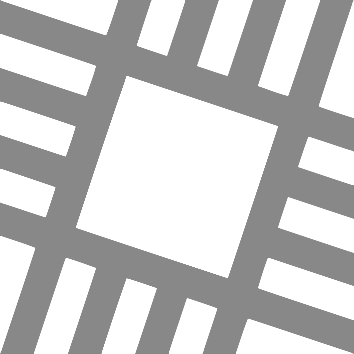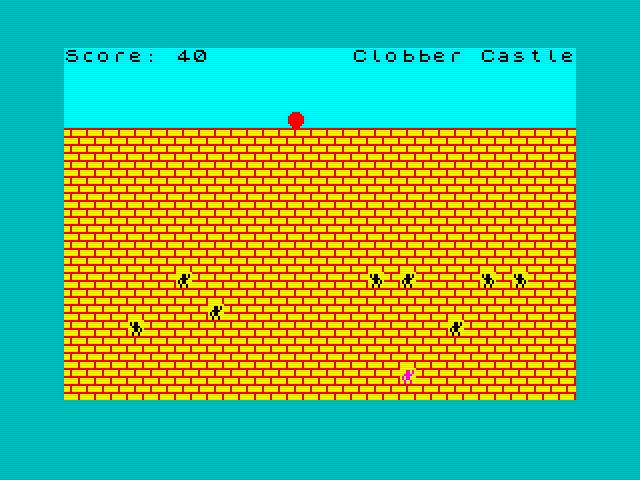I started going through the tapes in a haphazard order trying to get the big ones that I thought were most important, and I was successful in that I think. Now, I've settled on smaller stuff, so they should be easier to look at it and process into something usable to maybe post about.
On tape 02, we find Clobber Castle, a very simple game. I found this was a type-in from Sinclair Programs, #14, December 1983. You can read it here, and it's in in an archive for that issue here.
I think this shows simple techniques to reduce "attribute clash". We have the sky/wall boundary very clean, and the wall climbers color doesn't clash with the brick lines other than it obscures them a little.
It has you defending a "castle" from the top of its wall against 10 opponents climbing up the wall to get to the top. You knock them down by dropping a ball on them. When you do, they start over at the bottom in a random place. At the very bottom, you can't hit them, and they are colored magenta to indicate this. Once one of them reaches the top, the game is over.
The version I had on tape was modified from the original as I think I was trying to improve the game play that was a little jerky. I seem to have changed the keys used from "Q", "P", and "F" to "5", "8", and the space bar, and displayed the keys on the screen along with changing the ball color.
When I recovered it, I then continued to work on improving it, and I think it helped. I removed where the climbers could move more than one row at once. I also made the inner key loop count a variable to be able to change the ratio of key checks to climber moves which changes the speed of the climbers as well as the heartbeat sound. Then I made the number of key checks per move go down for each 20 climbers hit until you get to the max speed of one key check per climber update.
- Author: R. Flavell-While
- Date: 1983
- Modified by Ryan Gray, 1984 and 2023
- Program:
clobber, 3844 bytes, auto start line 5 - clobber2.tap


